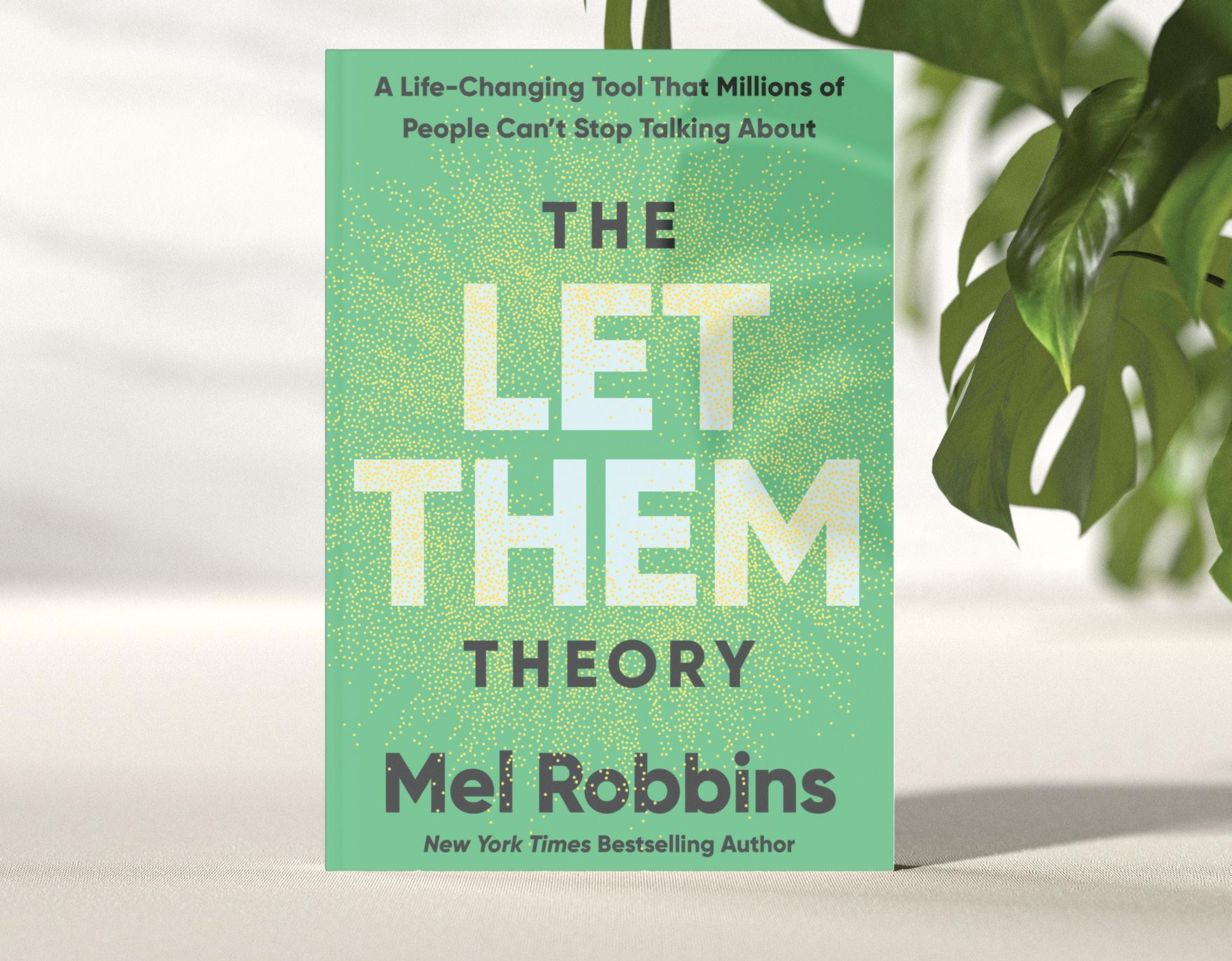
3 minute read
Let Them. Let Me.
After an intense 2024, one of those years where it felt like we were all running on fumes by December, I found myself, like so many others, horizontal on the couch in January, recovering. Not just from the long hours and deadlines, but from the habit so many of us develop when we care deeply: the inability to say no, the compulsion to take everything personally, the subtle but steady drain of overextending ourselves.
And then, during one of those quiet scrolling moments, I stumbled across a reel by Mel Robbins. Just a few seconds long. Just two words: Let them.
I must have replayed it three times. Not because the video was particularly dramatic, but because something shifted in me. Just like that. A click. A release.
Let them.
Let them think what they want. Let them decide what they want. Let them behave how they choose. It is not mine to carry. I do not have to control what people think of me. I do not have to fix every client’s misunderstanding or steer every situation to a perfect outcome. I do not have to make the world agree with me. And honestly, how boring would the world be if it did?
Back in the office, I found myself repeating it to Liza, my colleague and partner in overachievement. We had just dealt with a client who insisted on doing things in a way we advised against. Usually, we would stew. We would stress. We would dissect it over coffee. But this time, I shrugged and said, “If they want to make the poster purple, even if it is off-brand, let them.” And suddenly, there was less tension in the room.
For six months, I have lived with this phrase like a mantra. It has soothed, strengthened, and saved me more times than I can count. But it was not until I downloaded Mel Robbins’ new book, The Let Them Theory, that I realised I was missing the second half.
Let them… and let me.
Let them go their way. But let me focus on what I can build. Let them choose their version of right. But let me stay aligned with mine. Let them be loud or wrong or absent. But let me protect my peace, prioritise what energises me, and put my time where it matters.
This small shift, from trying to control the world to trusting ourselves within it, has changed the way I work, lead, and live. If you have ever felt worn thin by caring too much or trying too hard, I highly recommend the book (or the audiobook, which is how I listened).
Because sometimes, the most empowering thing you can do is simply to let them.
Elzanne McCulloch









